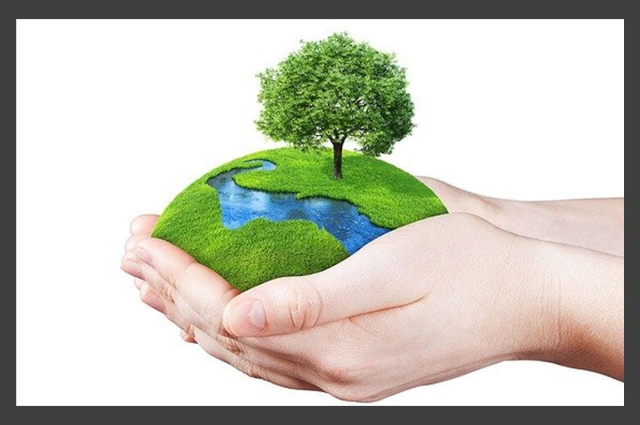
Image by Aksh Kinjawadekar from Pixabay
"The environment and the economy are really two sides of the same coin. If we cannot sustain the environment, we cannot sustain ourselves." The simplest explanation given by Wangari Maathai for sustaining with the green peace on a planet worth fighting for. It is said that the ecosystem that has the maximum amount of diversity is the richest so is proven by our motherland. But somewhere this interrelated world of organisms and environment is interrupted by the prevalent disease of degradation. We as a human being we had opportunities to reflect on our personal commitment to climate and biodiversity conservation, and promote global action by all for a sustainable future, so it's our duty to do the restoration process of managing a site to return it to its historic state in turns of ecosystem health and sustainability.

In general terms; Frame or the formation of living world by both biotic and abiotic components is called as ecosystem and the dependency of humans on it had led us to form another term called restoration. Humans have always had a negative outcome from the environment. The dependency on the environment has caused us to exploit it as natural resources. These resources are put in to product in essential as well as non-essential goods for the human population. This economical degradation caused by enormous number of factors includes many and the lead reasons consists of urbanization and population contributing to pollution, natural disasters, endangerment of species, global warming and what not.
In the last century, about half of the emerging infectious diseases of zoonotic origin resulted from changes in land use, agricultural practices and food production to respond to such demands. Extraction of fossil fuels, logging and agriculture are the main activities driving the invasion and degradation of the tropical forest. There are many pathways through which these activities pose double risk to our health. As is probably obvious to all of us, the burning of fossil fuels and the deforestation of tropical forests – mainly triggered by the increasing agricultural need to feed livestock, – are the main drivers of climate change and biodiversity loss. The potential effects of climate change on health have been intensively discussed in recent years, and include increases in respiratory and cardiovascular diseases, heat stress, mental health problems, vector-borne diseases and undernutrition. Away from all the indirect effects on health caused by increased poverty, mass migration and violent conflict. The effect of biodiversity loss on health is conciliated by complex mechanisms. Among them, the loss of pollinators safeguards food and nutrition security. Probably not considered an important risk to our health until now, extractive activities in the rainforest encourage the presence of human populations in such areas and give rise to an environment in which there is frequent close interaction between wild fauna and humans. For instance, hunting wild animals, poaching for local consumption or selling to distant markets is a common practice in such settlements.
There is a growing realization that today diversity will not be conserved by only the hotspot areas, but whole ecosystem connected with strings needed to be matched in a proper and sustainable way according to the necessity. Today's century needs to obey the task not to cut down forest but to irrigate deserts to achieve more, which can be majorly done by the youngsters as platelets starts the whole journey to forest. Ecological restoration outlines how it can provide enhanced biodiversity outcomes as well as improve human well-being in degraded landscapes. Majorly restoration should improve biodiversity conservation, human livelihoods, empower local people and improve ecosystem productivity.
Although many organizations are working like - The National Afforestation and Eco-Development Board (NAEB) of the Ministry of Environment, Forest and Climate Change (MoEFCC) is the focal agency for restoration of the Government of India. Also, In India, Foundation of ecological security (FES) has played a pioneering role in furthering the concept of Commons as an effective instrument of local governance, as economic assets for the needy and for the viability of adjoining farmlands. While 'Chintan' is the organization which works to ensure more responsible consumption of resources so is the 'Greenpeace India' which is one of the best Indian Environmental NGOs, whose reach extends to over 55 other countries globally. Greenpeace India runs four distinct campaigns, namely: Stop climate change, preserving the oceans, Sustainable agriculture, Prevention of another nuclear catastrophe. Similarly, “Help Delhi Breathe” works to restore the pollution crisis in the region and likewise, Clean Air Asia sensitizes over air pollution to combat it and bring a change. Navdanya, Toxics Link, Environics Trust, Haara Jeevan are topmost NGOs working to bring a change through restoration.
The need for this restoration is not only to sustain on our motherland but to make it a better place which didn't out shares the negative did we had done on it. Which is recently seen. India has an ambitious target of restoring 26 million hectares of degraded lands in the future. Reaching this target will require certain major enablers. Achieving this scale will need many well-trained restoration practitioners, restoration ecologists.
Policies can provide a cost-effective, efficient, and sustainable way for India to overcome its ecological and socio-economic challenges but more than that the human mind is capable enough to bring a change that ecological balance needs. Like Morrison had become the first supermarket to roll out plastic free fruits and veg areas in many of its stores. The failures identified highlight priorities for future researches like NEERI in Nagpur always comes with initiatives for motherland. Scuba divers in Lake Tahoe reportedly collected over 200 pounds of trash in a single day from the area. Such acts give us the hope in those black days that greenery is still alive, and we can do much more for our society by proper control over resources and manage to create better future altogether.
